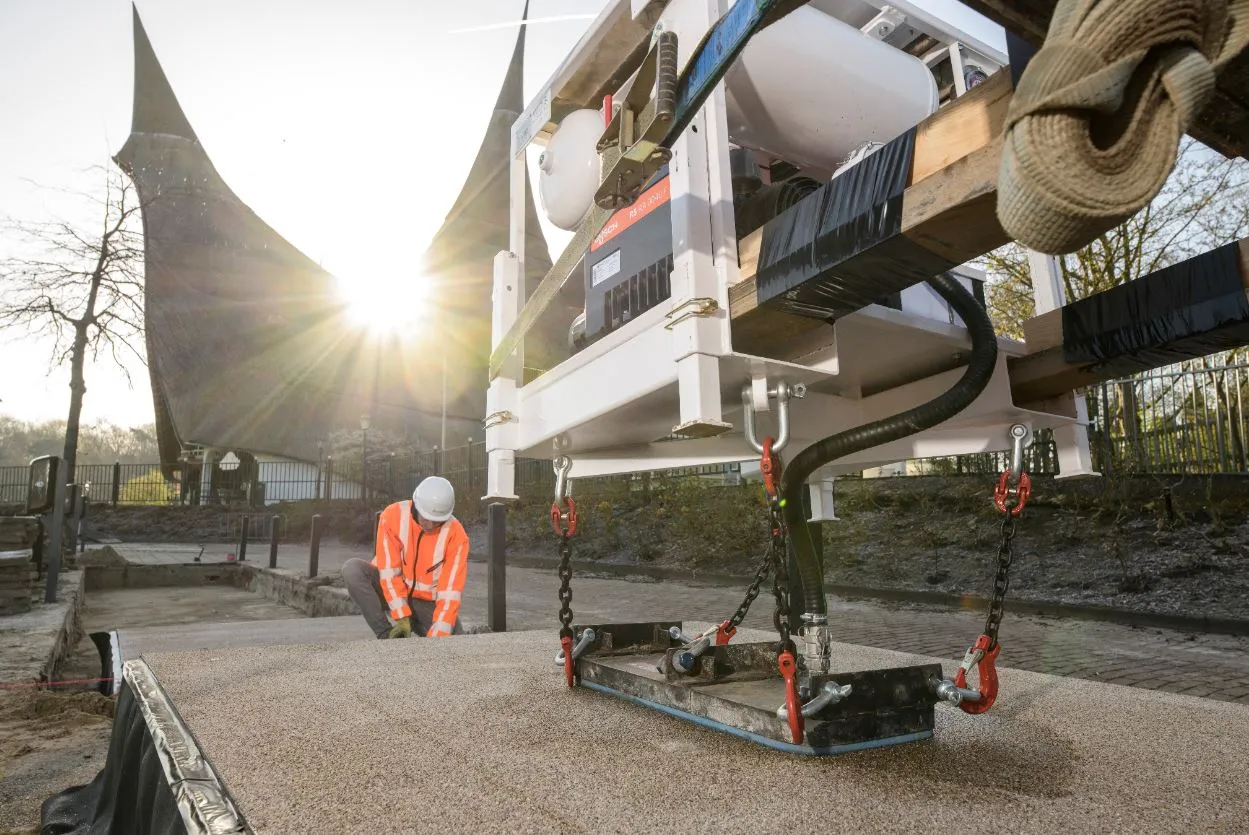
Dutch company PlasticRoad officially went commercial with its products on May 20, according to the company.
The announcement noted that PlasticRoad has come a long way since its first product trials in 2018. “The world’s very first plastic road was installed in September 2018 in the Dutch city of Zwolle,” said the company.
“Today we officially launch our circular, climate-adaptive and lightweight - CCL - products onto the market. These industrially produced products made from plastic waste are now commercially available, we are ready,” said Eric Kievit, managing director of PlasticRoad.
Recycled raw material used in their production consists of 100% recycled municipal plastic waste. The company believes that their products - CCL200 and CCL300 - are the lightest paving structures in the world, from 48kg/m² to 40kg/m². The CCL300 product offers a filter system that completely removes the need for a dedicated storm sewer. Embedded sensors present new opportunities to scale up the modular infrastructure in terms of functionality and connect it to existing traffic management systems.
For commercialisation of the product, PlasticRoad has reinforced both the connectors between individual road elements and the structure as a whole.
The company manufactures its plastic road elements on an industrial scale with Wavin and VolkerWessels as shareholders.
The latest user of its products is the Efteling Amusement Park, a fantasy-themed amusement park in Kaatsheuvel, the Netherlands. The attractions reflect elements from ancient myths and legends, fairy tales, fables and folklore. Part of the footpath leading to the entrance of the park was made using PlasticRoad’s CCL300 product. “At Efteling, we ultimately hope to become climate neutral, and both waste reduction and recycling play an important part in this endeavour,” said Wyke Smit, head of administrative affairs at the park.
Last summer the company said the world’s first plastic surfaced bike paths, laid in the Netherlands in 2018, recorded a millionth crossing, according to PlasticRoad, the company that makes the surface. Each of the two 30m bike paths contain about 1,000kg of recycled plastics, the equivalent of 218,000 plastic cups. The pilot version of the PlasticRoad has cut CO₂ emissions by between 50% and 70% compared to conventional bike paths made from asphalt or concrete slabs, claims the company.





